The Best Foods To Eat When You’re Low On Vitamin B

Vitamin B is essential for your body’s energy production, brain function, and cell metabolism. When you’re low on Vitamin B, it’s important to replenish it through your diet. Here are some of the best foods to consider adding to your meals to boost your Vitamin B levels and maintain optimal health.
1. Eggs
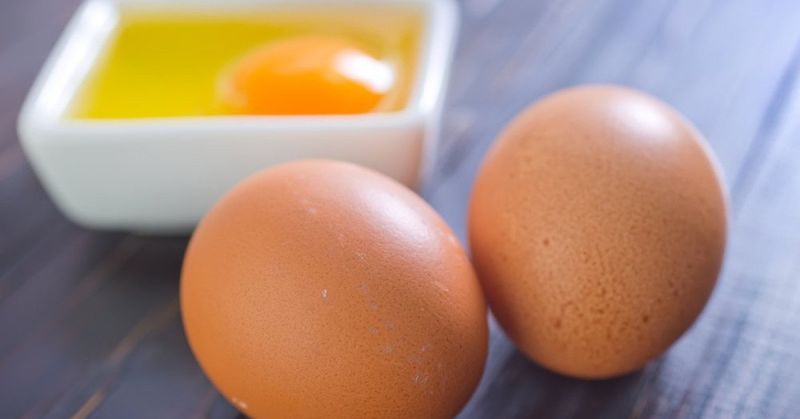
Eggs are a breakfast staple loved by many. Rich in B12, riboflavin (B2), and biotin, they’re a compact powerhouse of nutrition. Starting your day with eggs not only boosts your energy but also supports brain health. Affordable and versatile, they can be scrambled, boiled, or poached. Each egg is packed with essential nutrients that help convert food into fuel. They’re not just for breakfast—add them to salads or sandwiches for a protein boost. Beyond their nutritional benefits, eggs are a staple in various cuisines around the world, making them a versatile choice.
2. Salmon
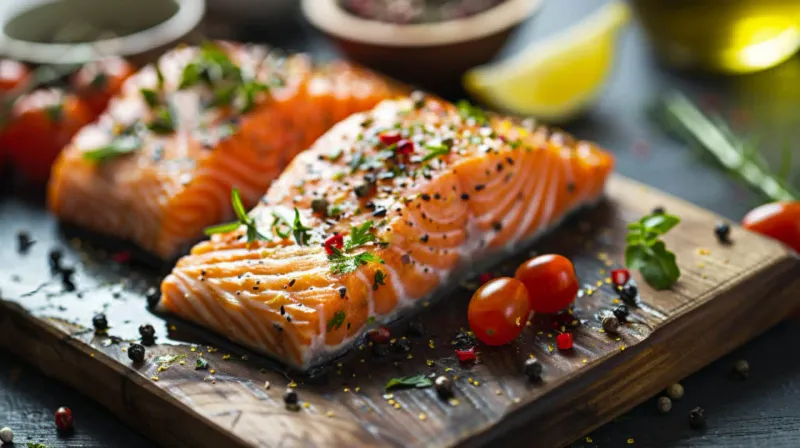
Salmon is a delicious fish that’s also a nutritional giant. It’s loaded with B12, niacin (B3), and B6, contributing greatly to energy metabolism and overall health. Known for its heart and brain benefits, this fatty fish is a favorite among health enthusiasts. Whether grilled, baked, or served raw as sushi, salmon adds a rich, savory flavor to meals. Its omega-3 fatty acids are a bonus, promoting heart health. Quick to cook and versatile in recipes, salmon stands out as a star ingredient on any table, impressing both taste buds and health-conscious eaters.
3. Leafy Greens (Spinach, Kale, Romaine)
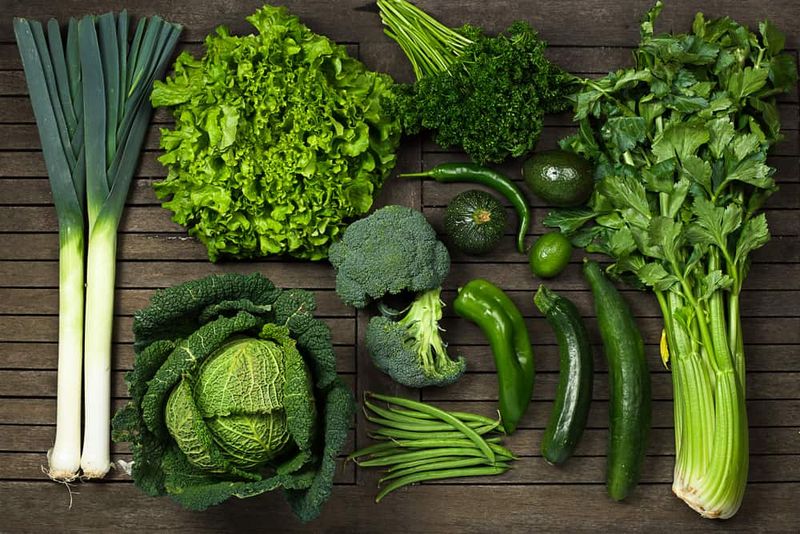
Leafy greens, including spinach, kale, and romaine, are packed with folate (B9), essential for red blood cell formation and growth. These greens are especially important during pregnancy. Their fresh, crisp texture and mild flavor make them a perfect addition to salads and smoothies. Incorporating them into your diet can significantly boost your nutritional intake. Besides being vitamin-rich, they also provide minerals like iron and calcium. Their versatility in cooking—from salads to sautés—makes leafy greens a staple in health-conscious kitchens, offering a fresh burst of green goodness.
4. Chicken and Turkey
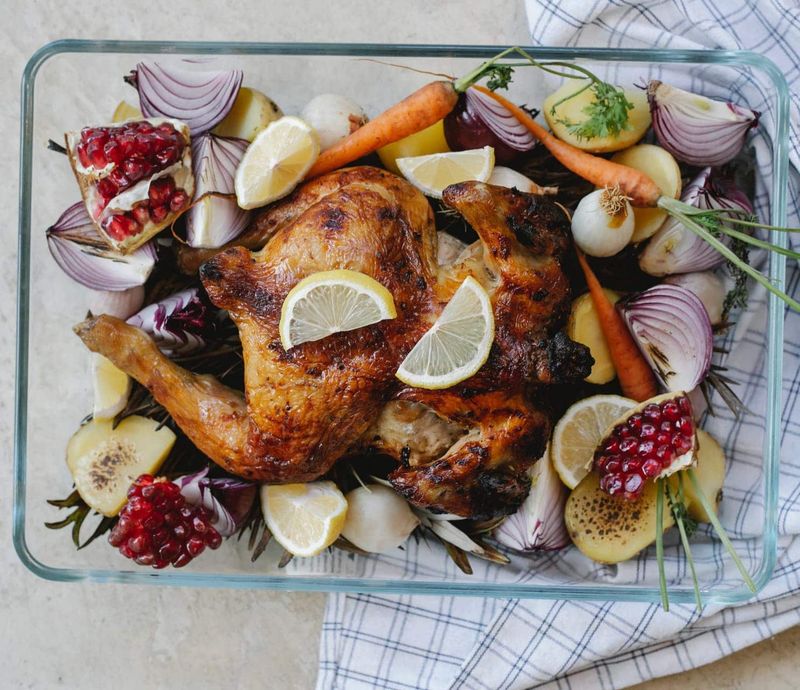
Chicken and turkey are not only delicious, but they’re also packed with niacin (B3), B6, and pantothenic acid (B5). These vitamins are crucial for converting food into energy and supporting brain health. As lean protein sources, they offer a satisfying and nutritious option for meals. Whether roasted, grilled, or sautéed, their mild flavor pairs well with a variety of dishes and seasonings. These birds provide versatility in the kitchen, from hearty sandwiches to festive holiday roasts, making them a beloved choice for families and gatherings alike.
5. Beef (Especially Liver)
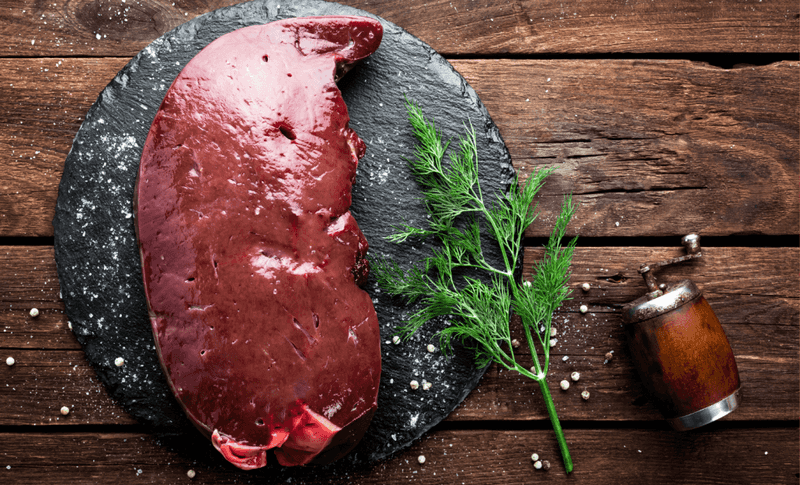
Beef, especially liver, is a rich source of B12 and contains B2, B3, B5, and B6. It’s a nutritional goldmine, albeit an acquired taste for some. Liver, in particular, offers exceptional nutrient density in small servings. Known for its robust flavor, it’s often featured in traditional cuisines. Despite its uncommon taste, the health benefits it provides are immense. For those who enjoy its unique taste, liver can be a hearty addition to meals. Paired with onions or served as pâté, it offers a rich culinary experience that’s hard to match.
6. Legumes (Lentils, Chickpeas, Black Beans)
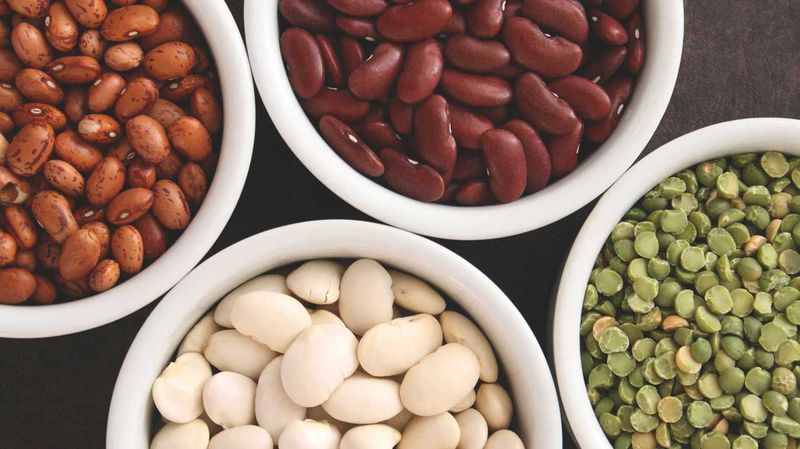
Legumes like lentils, chickpeas, and black beans are excellent sources of B1 (thiamine), B6, and folate. These plant-based powerhouses are perfect for a variety of dishes, from soups to salads. Their hearty texture and earthy flavor make them a favorite in vegetarian and vegan diets. Rich in fiber and protein, legumes support digestive health and sustain energy levels throughout the day. Whether you’re making a chili or a curry, these pulses add a rich, satisfying element. They’re a timeless staple in many cuisines, embodying both tradition and nutrition.
7. Fortified Cereals and Nutritional Yeast
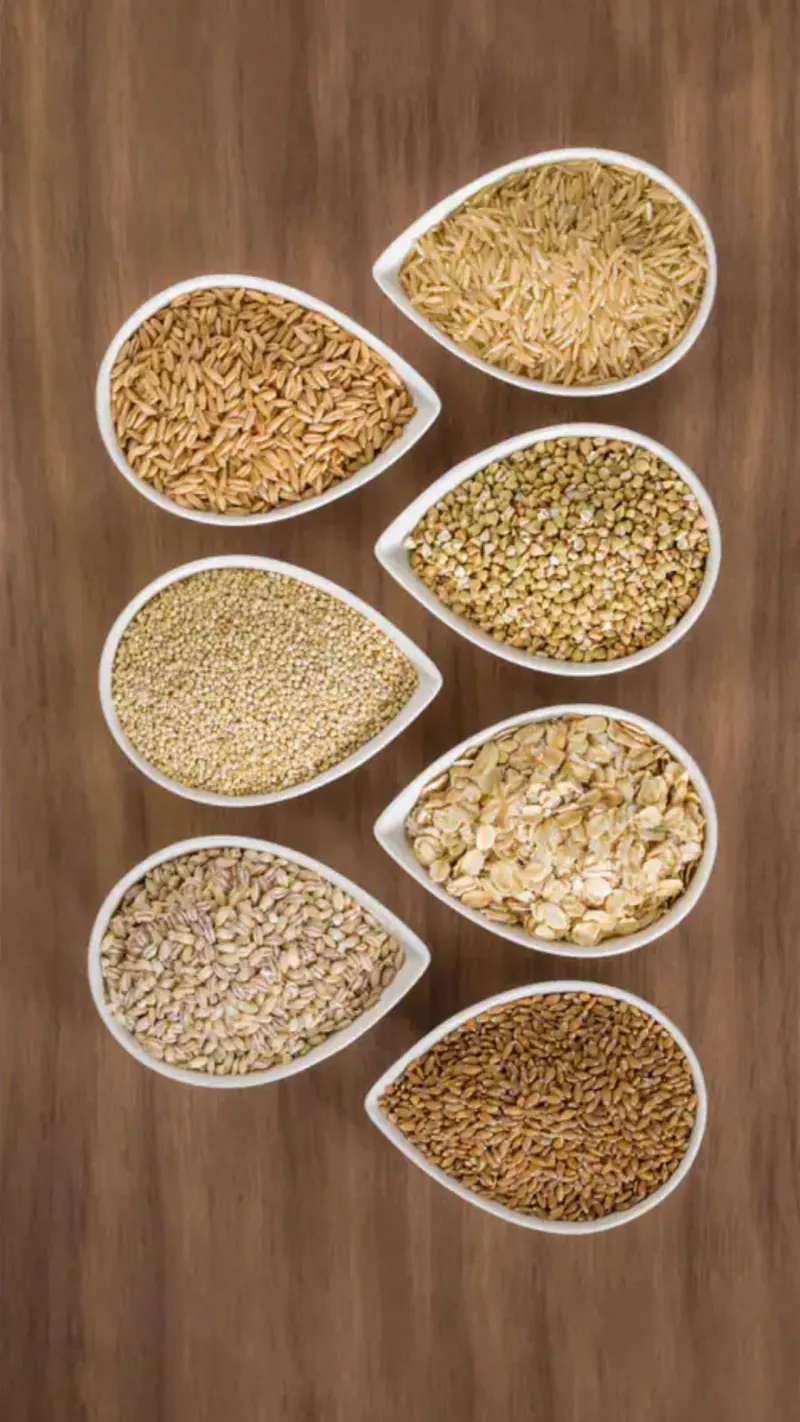
Fortified cereals and nutritional yeast are excellent for boosting B vitamins, especially for vegetarians or vegans. Fortified cereals contain added B12 and other B-complex vitamins, making them a convenient breakfast choice. Nutritional yeast, with its cheesy flavor, adds a unique twist to dishes like popcorn or pasta. These foods are an easy way to enhance nutrient intake, especially when animal products are limited. Their versatility in culinary use and ease of preparation make them a valuable addition to any diet looking to increase vitamin intake efficiently.
8. Milk and Dairy Products
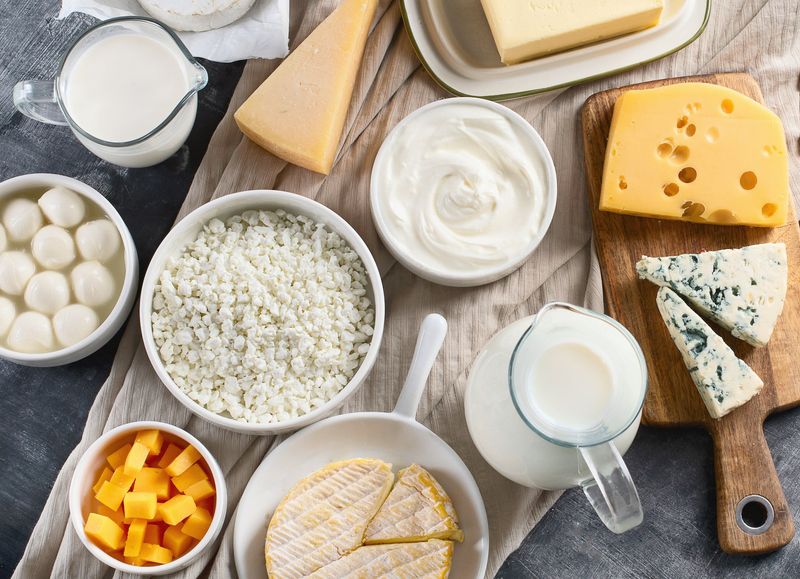
Milk, yogurt, and cheese are not just calcium-rich but also abundant in riboflavin (B2), B12, and B5. These dairy delights support bone and nerve health, making them essential in many diets. Creamy and versatile, they complement both sweet and savory dishes. From breakfast cereals to creamy sauces, dairy products enhance flavor and nutrition. Their rich textures and comforting taste make them a favorite in households worldwide. Enjoy them plain, or use them in cooking to add nutritional depth and deliciousness to everyday meals.
9. Tuna
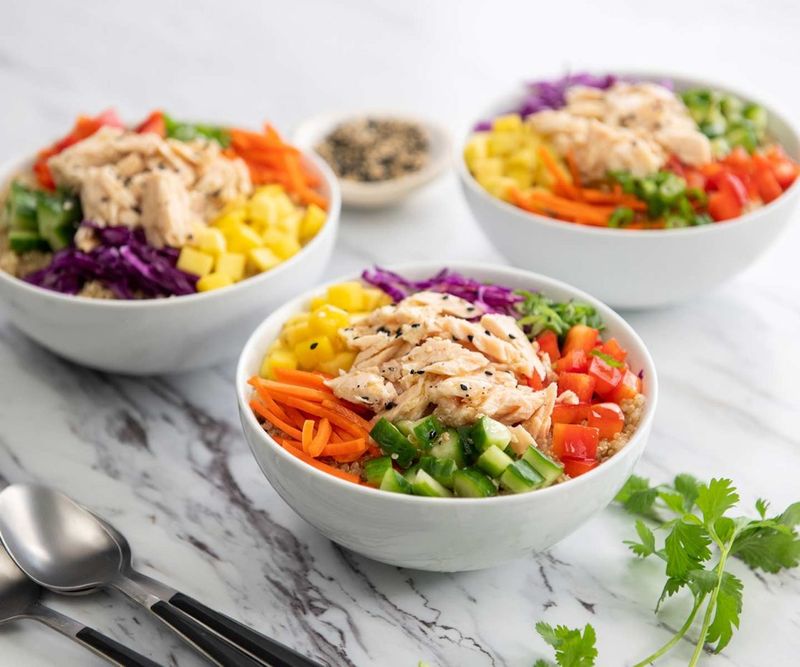
Tuna is a versatile fish known for its high niacin (B3), B12, and B6 content. This protein-rich food is perfect for quick meals and adds a savory depth to dishes. Whether enjoyed in sushi, salads, or as a standalone steak, tuna is favored for its rich, meaty flavor. Its nutritional profile supports energy metabolism and brain health. When consuming tuna, be mindful of mercury levels and limit to a few servings a week. Paired with fresh vegetables or grains, it offers a wholesome, nutritious meal that satisfies both taste and health.
10. Whole Grains (Brown Rice, Oats, Barley)

Whole grains such as brown rice, oats, and barley are packed with B1, B3, and B5, supporting metabolism and energy production. These grains are a healthier choice over refined ones, offering fiber and essential nutrients. Their nutty flavors and chewy textures make them a filling and satisfying addition to meals. From morning porridge to hearty grain bowls, whole grains are versatile and nourishing. They’re fundamental in promoting digestive health and sustained energy. Incorporating them into your diet can lead to long-term health benefits and culinary satisfaction.
